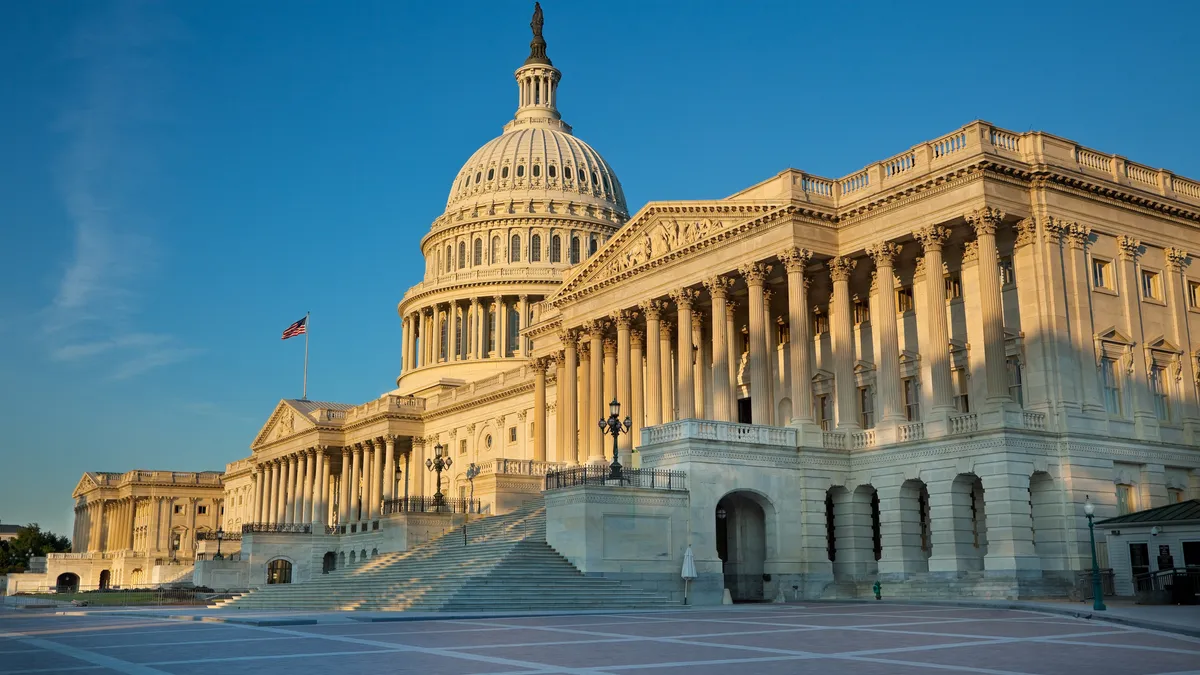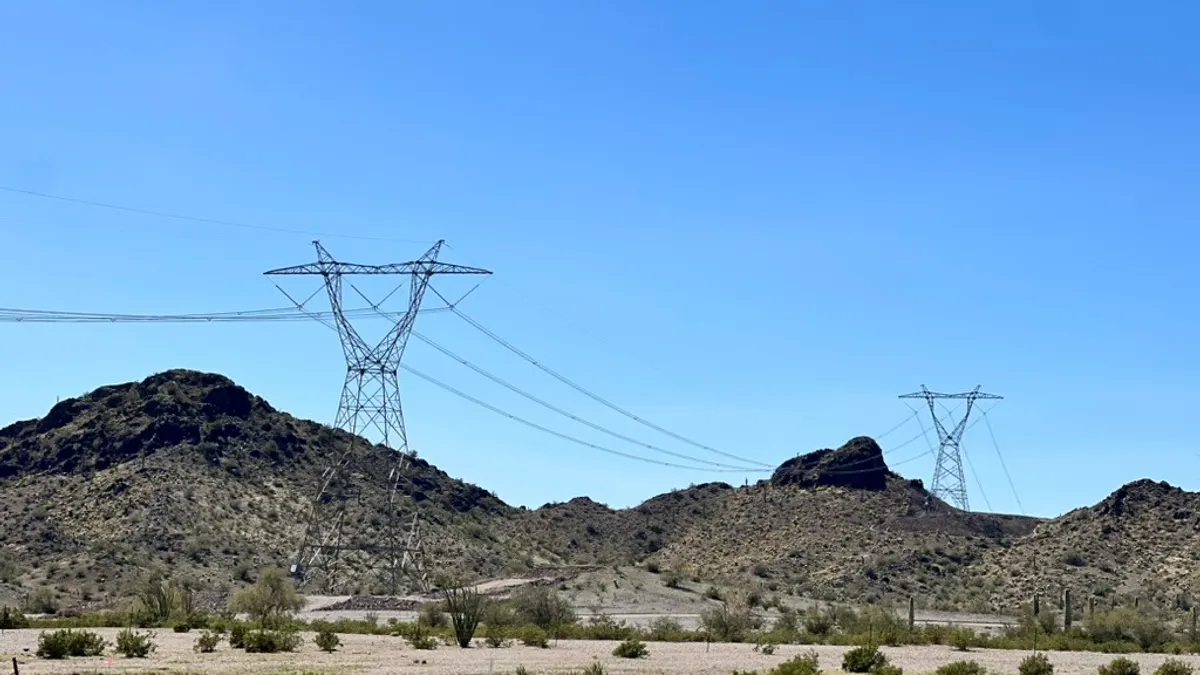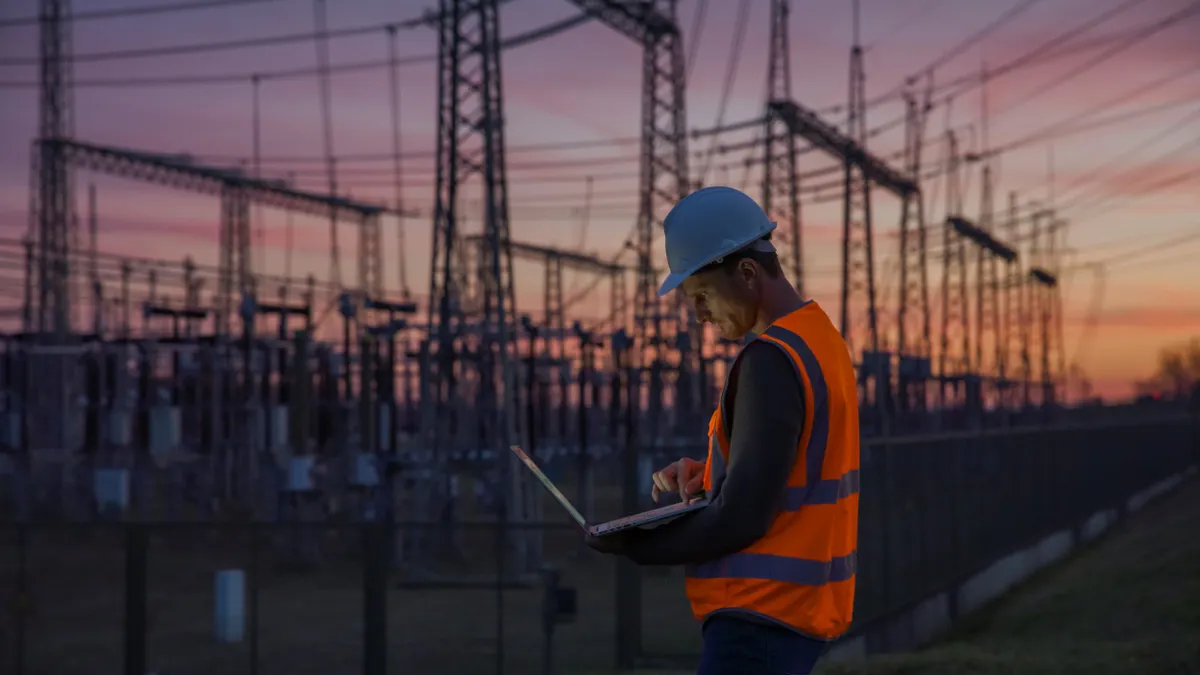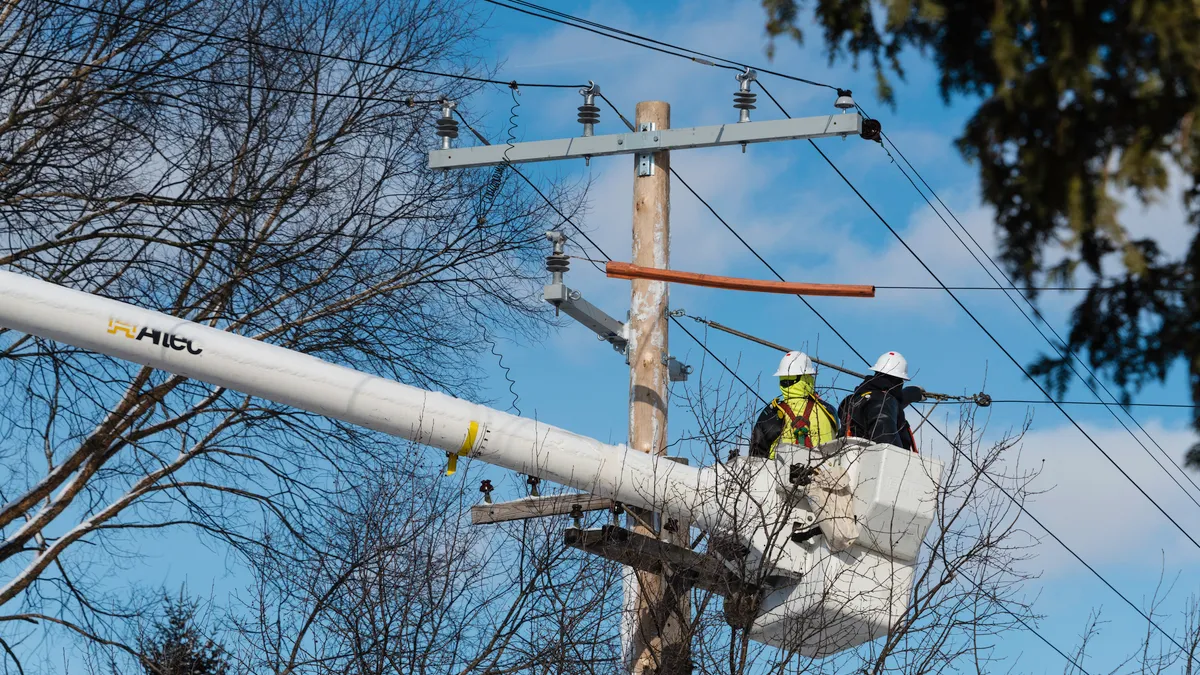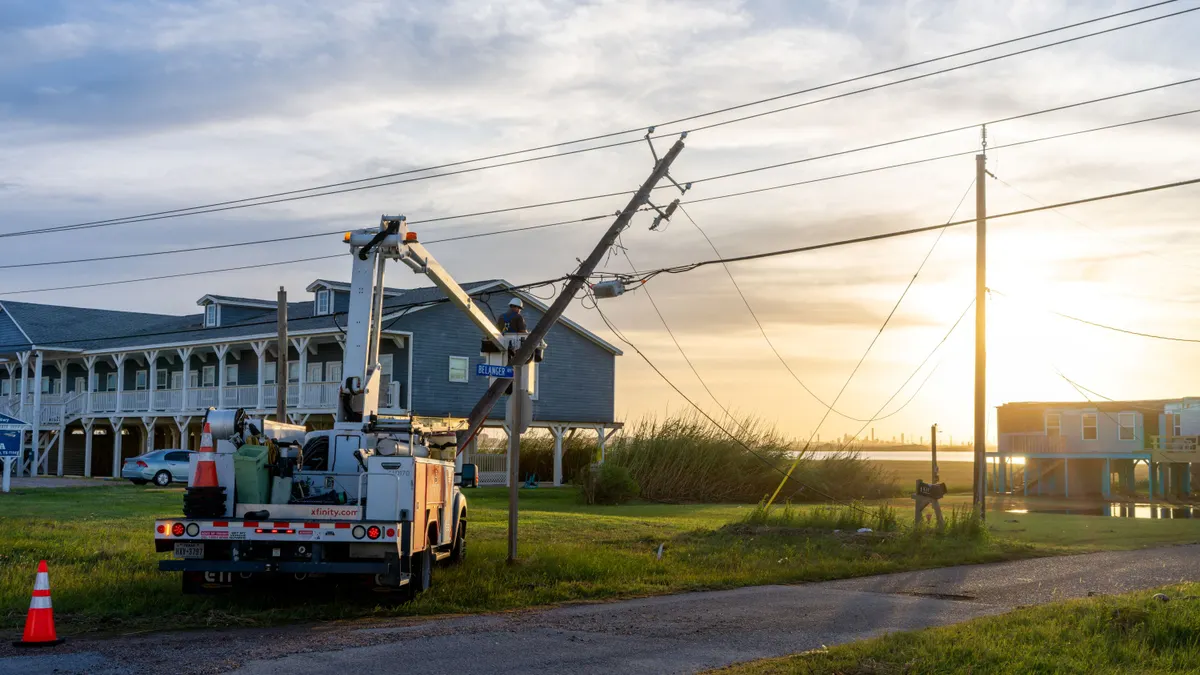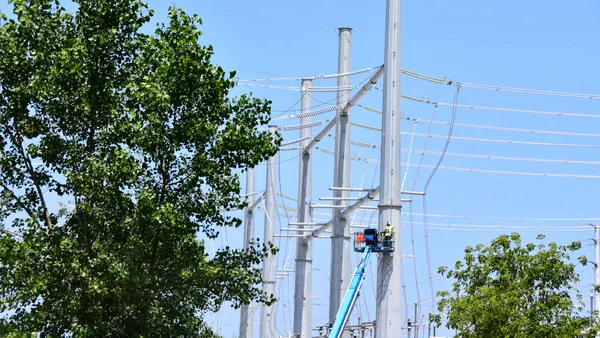House Republicans on Tuesday started considering a package of 16 energy bills, including permitting reform for infrastructure such as transmission lines, with a goal of passing the group by the end of March.
Some of the bills would repeal restrictions on liquefied natural gas exports and imports, eliminate a $27 billion greenhouse gas reduction fund and streamline natural gas pipeline permitting. Those bills and others cleared House Energy and Commerce Committee subcommittees on Tuesday.
The legislation is “dead on arrival” in the Democratically-controlled Senate, but could be a starting point for negotiations this summer, attorneys with Akin Gump Strauss Hauer & Feld said during a webinar Tuesday.
The House Natural Resources Committee held a hearing Tuesday on a draft bill called the Building United States Infrastructure through Limited Delays and Efficient Reviews Act offered by Rep. Garret Graves, R-La.
The legislation is the “backbone” of the Republicans’ permitting reform effort, according to Chris Treanor, an Akin Gump attorney.
The bill aims to speed up environmental reviews under the National Environmental Policy Act, partly by narrowing the scope of the reviews, allowing project sponsors to participate in them, and limiting lawsuits, according to a summary of the legislation.
The bill includes provisions supported by the National Rural Electric Cooperative Association, according to CEO Jim Matheson.
“Everyone, even organizations that don’t always agree on a lot, recognizes the need for a more timely and predictable process in this transition to a much more electrified economy,” he said during a Feb. 23 media briefing.
The trade group backs provisions that would limit litigation surrounding infrastructure permitting, Matheson said.
Groups such as the Center for Biological Diversity oppose it, saying it would undermine environmental reviews. “Congress should utterly reject this unprecedented effort to turn NEPA into a meaningless rubber stamp for polluters,” Paulo Lopes, a senior policy specialist for the group, said Monday.
The Senate will likely wait to see what the House does and then the “real” negotiations will start, according to Treanor.
Last year, Sen. Joe Manchin, D-W.Va., said he had 47 Democrats ready to support his permitting reform legislation, according to Treanor.
For Democrats, permitting reform, viewed as helpful in building transmission lines and renewable energy facilities, is a new priority, according to Treanor.
“It's going to take time for Democrats to get comfortable with the idea that they need to support both traditional energy permitting priorities and new clean energy permitting priorities, and same with the Republicans,” he said.
Republicans are comfortable permitting “traditional” energy sources, but they may struggle to compromise with Democrats to make sure transmission and offshore wind priorities are also taken care of, he said.
House Republicans will likely hold oversight hearings of the bipartisan infrastructure law and the Inflation Reduction Act, especially to ensure they don’t steer funding to Chinese companies, Akin Gump attorneys said.
The laws themselves are likely safe from Republican tinkering, they said. “The IRA is the new Obamacare,” Jamie Tucker, an Akin Gump attorney, said, referring to dozens of unsuccessful attempts by Republicans to repeal or limit the Obama administration’s healthcare law.
Many Republicans are touting jobs and manufacturing plants in their districts made possible by the IRA, which will blunt efforts to roll it back, Treanor said.
Some of the permitting legislation could affect the Federal Energy Regulatory Commission’s oversight of gas pipelines, liquefied natural gas facilities and transmission lines, according to Emily Mallen, an Akin Gump attorney.
With a vacant seat, the agency is unlikely to move soon on some of its pending rulemakings, such as gas infrastructure permitting reforms, she said.
The agency will likely wait to see how the Congressional legislation develops before advancing its transmission backstop siting proposal, according to Mallen.
Most likely, the White House will nominate someone to take FERC’s vacant seat in tandem with filling FERC Commissioner James Danly’s seat, she said. His term ends June 30.
There's a “general understanding” that Danly won’t be renominated so “we're going to see a new Republican nominee paired up with a new Democratic nominee just to make the path easier to get bipartisan agreement on who's going to be going up into the commission,” Mallen said.



